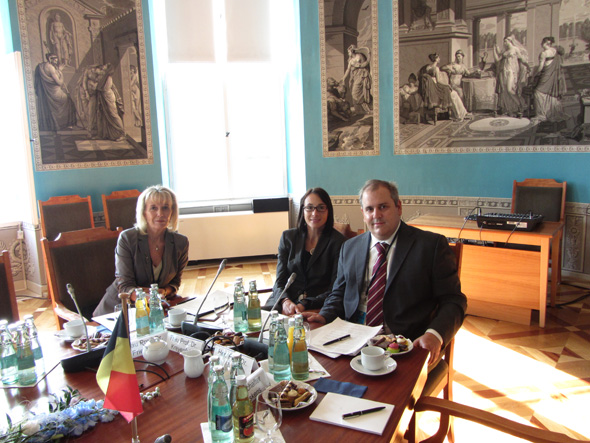September 19, 2014 | News
Michaela Kreyenfeld held a lecture at a meeting of German-speaking heads of state

© Presse- und Informationsamt der Bundesregierung / Steffen Kugler
MPIDR-researcher Michaela Kreyenfeld was invited to a meeting of the German-speaking European heads of state held in Bad Doberan and Rostock on on September 18. She delivered a presentation on the development of birth rates in German-speaking countries.
The invitation to the meeting was issued by the German Federal President, Joachim Gauck. It was attended by King Philippe of Belgium, Grand Duke Henri of Luxembourg, Hereditary Prince Alois of Liechtenstein, the Austrian Federal President, Heinz Fischer, and the current President of the Swiss Confederation, Didier Burkhalter.
Michaela Kreyenfeld and Professor Roland Rau of the University of Rostock held presentations on the demographic development in those countries of Europe where German is an official language. Michaela Kreyenfeld focused on the differences and similarities in the development of fertility in the individual countries; Roland Rau held a talk on the development of mortality. The event was chaired by Angela D. Friederici, Vice-President of the Max Planck Society.
The first part of the event took place in Bad Doberan, followed by a visit to Warnemünde, the Documentation and Memorial Center of the former Stasi remand prison, and St. Mary’s Church, both located in Rostock.
It has been a tradition to meet up annually ever since 2004, each time in a different country. Last year’s meeting was hosted by Austria; this year’s round was joined by two newcomers, Liechtenstein and Belgium, and focused on the 25th anniversary of the peaceful revolution and demographic change.